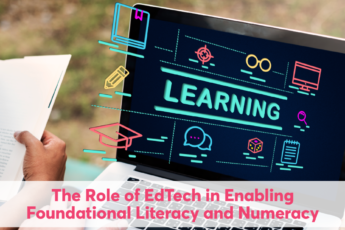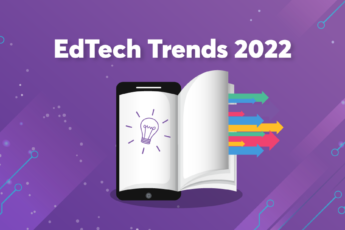The Benefits of Vocational Training for Students With Diverse Learning Needs
Inclusive education has evolved from being a mere buzzword to a fundamental right that empowers students with diverse learning needs to thrive academically and beyond. In today’s ever-changing world, it is crucial to recognize and address the unique challenges faced by students with different learning styles, abilities, and backgrounds. One avenue that has proven transformative for these students is vocational training and skill development, also known as career and technical education. This tailored approach to education equips individuals with practical skills, boosts their confidence, and opens doors to a world of opportunities, paving the way for a more inclusive and equitable society.
Technical education offers a range of benefits for students with diverse learning needs, from hands-on experiences and real-world applications to individualized instruction and support. By embracing this educational approach, we can help break down barriers, foster a sense of belonging, and promote success for all students, regardless of their learning needs.
📚Education Inclusivity Initiative Across Globe
Technical and industry-focused learning fosters collaboration among governments, institutions, and social partners, resulting in fruitful partnerships that significantly benefit learners, as per the UNESCO 2022 report. Below are some of the highlights:
- Germany’s 2019 National Skills Strategy highlights the strong alliance between the government and social partners, aiming to foster a culture of continuous vocational and general education. This approach makes lifelong learning a norm and improves access to diverse training providers and funding opportunities through platforms like INVITE, connecting federal and state programs.
- Government and private sector partnerships in England play a crucial role in Technical and Vocational Education and Training. T-Level qualifications work closely with industries and employers. This offers young people practical skills as an alternative to A-level academics. Employers also help develop apprenticeships, allowing youth to learn high-level skills and earn simultaneously. These collaborations ensure students gain the skills and experience needed by industries.
- Spain’s new vocational education law emphasizes social partner participation, including businesses, in training design, development, evaluation, and innovation. The law encourages small and medium-sized enterprise networks to rotate trainees. In addition, it introduces technological hubs, innovation clusters, and a platform for information exchange and collaboration among schools, partners, enterprises, and associations.
📚India’s Initiative on Vocational Education
Students from the 9th grade to 12th are provided NSQF-compliant vocational courses to help students acquire various skills to meet industrial needs. This scheme intends to help children make #career choices by providing additional lectures based on their competencies, aspirations, and aptitudes. The vocational courses are recommended based on the number of hours, student’s age and educational qualifications.
The New India Literacy Programme or Nav Bharat Saksharta Karyakram is a government initiative in place for 5 crore illiterates, who have failed to complete their primary education. The idea is to provide foundational literacy and numeracy, critical life skills, vocational skills development, and primary education. This scheme will continue to improve the skills of these individuals to such an extent that they can find gainful employment.
Now, let’s delve deeper into the benefits of vocational education for students with diverse learning needs and explore how it contributes to the broader goal of promoting inclusive education.
📚Tailored Learning Experience
Vocational training and skill development caters to the unique needs of each student. It recognizes that individuals learn differently and adapt the curriculum accordingly. By providing a more personalized and hands-on learning experience, students with diverse learning needs can engage actively and gain practical skills that can be utilised in their chosen fields.
📚Building Self-Confidence
As they master practical skills and witness their progress, students develop a strong sense of accomplishment and belief in their abilities. This newfound confidence transcends the classroom and extends to various aspects of their lives, paving the way for greater independence and self-advocacy.
📚Fostering Practical Skills
Vocational activities for students emphasizes hands-on learning and provides practical skills relevant to specific industries. This approach equips them with tangible abilities that are highly sought after in the job market. Whether carpentry, culinary arts, automotive mechanics, or graphic design, vocational training empowers students to enter the workforce with specialized expertise, increasing their employability and career prospects.
📚Promoting Social Interaction
Inclusive education extends beyond academics and embraces social inclusion. Vocational training and skill development programs foster a supportive and inclusive environment, enabling students to interact and collaborate with their peers, instructors, and industry professionals. Through teamwork, problem-solving, and communication, students with diverse learning needs develop crucial social skills that prepare them for the complexities of the workplace and build lasting relationships.
📚Enhancing Independence
Vocational training is vital in promoting independence for students with diverse learning needs. By focusing on practical skills, students gain the ability to apply their knowledge in real-world scenarios, leading to increased self-reliance. Vocational programs empower students to take charge of their lives and reduce their dependence on external support, ultimately enhancing their overall quality of life.
📚Opening Doors to Employment
One of the primary goals of vocational training is to prepare students for gainful employment. By equipping them with job-specific skills, vocational programs enhance their chances of securing meaningful employment opportunities. In addition, employers increasingly recognize the value of diverse perspectives and abilities, making vocational training graduates with diverse learning needs an asset to the workforce.
The Final Word
At Square Panda India, we’re committed to enhancing vocational training in India. Our initiative focuses on using innovative, technology-driven solutions to improve learning experiences. We leverage cutting-edge tools and engaging content to make education accessible and enjoyable for all.




Leave a Comment